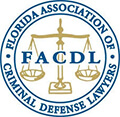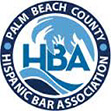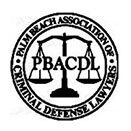Driving Without a License

Driving Without a License Definition, Penalties and Enhancements
Driving Without a License or No Valid Driver’s License (often abbreviated as No Valid DL) is most commonly charged as a second degree misdemeanor in Florida, punishable by 60 days in jail and a $500 fine. The law on misdemeanor No Valid DL is found in Florida Statute §322.03(1) and simply states that a person cannot drive a motor vehicle in Florida without a valid driver’s license. A valid Florida Driver’s License is a license issued by the Florida Department of Motor Vehicles with no suspensions, cancelations, expirations, or any other issues. Any resident of Florida driving on a Florida highway is required to have a valid DL.
Beyond the regular second degree misdemeanor charge of No Valid DL are enhancements based on aggravating circumstances. For example, a commercial driver who is driving without a valid commercial license commits a first degree misdemeanor, punishable by 1 year in the county jail and a $1000 fine. The penalties are also enhanced for making a false affidavit about not having a driver’s license in any other jurisdiction in order to get a driver’s license in Florida; those who are alleged to have made a false affidavit concerning their previous driver licenses are accused of committing a first degree misdemeanor.
The most serious enhancement occurs when a driver with no license causes death or serious bodily injury to another person by driving carelessly or negligently. The charge of Driving Without a License Causing Serious Bodily Injury or Death is designated as a third degree felony in Florida Statute §322.34(6)(a), carrying a maximum sentence of 5 years in state prison and a $5000 fine.
What Happens When You Are Charged with No Valid Driver’s License
Law enforcement typically initiates a charge of No Valid Driver’s License by citation. Although many people associate citations with mere traffic tickets, certain citations are considered criminal. As outlined above, Driving Without a License IS a criminal offense in Florida.
In Palm Beach County, a citation for Driving Without a License is often the only charging document submitted to the court system for the case (without a Notice to Appear or Information, which we will describe below). When the citing officer submits the No Valid DL citation to the clerk of courts, the clerk’s office creates a new criminal traffic case in the court system. The accused, or Defendant, should then receive a Notice of Hearing that contains the date, time and place for arraignment (formal reading of the charges).
There are other ways to initiate a No Valid Driver’s License charge: The police officer can serve the accused with a Notice to Appear (NTA); the officer can arrest a suspect on scene; or, the State Attorney’s Office can file an Information. In rare circumstances, when an officer is uncertain of whether to charge the suspect at the scene, or if the case still needs further investigation, a case may be initiated days, weeks, or even months after the alleged incident by Warrant or Summons. Regardless of the method of initiating a criminal case, the first court hearing will be arraignment.
At arraignment, a Defendant can plead “not guilty” and continue with the court process in order to review the evidence, negotiate with the prosecutor, and consider any plea offers. Note that a “not guilty” plea does not mean that a person cannot resolve his or her case later; it simply means that the accused is not ready to, or comfortable with, admitting guilt at the first court date without knowing his or her rights, the evidence in the case, and all options available. A plea of “not guilty” will prompt the judge to schedule a future hearing, typically called “Case Disposition.” During the life of a criminal traffic case, it is possible to have multiple hearings (Case Dispositions, Plea Conferences, and Status Checks) while the accused prepares his or her defense and considers all of the options. Ultimately, if the Defendant does not wish to accept a plea offer after carefully weighing the evidence and the options, the Defendant may exercise his or her constitutional right to a trial by judge or jury.
Alternatively, the accused can plead “guilty” at arraignment and end the case immediately. (We DO NOT recommend this route, as it eliminates the opportunity to prepare a defense and perhaps seek a better plea offer).
While we discussed maximum sentences, the reality is that there is a range of possible outcomes for a Driving Without a License charge. The court may enter an Adjudication (conviction) or Adjudication Withheld (plea of guilty without a conviction); the State may offer a Deferred Prosecution Agreement, which involves completion of certain terms in exchange for a Nolle Prosse (dropping your case); or, you may receive probation as part of a plea deal with the State or a plea to the court. Sometimes an offer is in the form of a “Plea and Pass”; a Plea and Pass is a plea of guilty with the opportunity to later withdraw the plea and drop your case after completing the negotiated terms.
How Casanova Law Can Help

Our criminal defense law firm is experienced in No Valid Driver’s License cases. Founding Attorney Lourdes Casanova is a former prosecutor for Palm Beach County with several years of criminal law experience. Our criminal defense law firm can help by:
- getting on your case immediately
- attending court on your behalf
- requesting evidence on your behalf
- identifying the prosecutor in your case
- negotiating a better plea offer
- analyzing the evidence as compared to the real facts
- providing mitigating information to the State and Court to present you in the best light
- offering the proper guidance when it comes to the strengths and weaknesses of your case
- helping you decide between a plea offer and trial
- giving you peace of mind
- fighting to get your case dismissed.
If you have been charged with Driving Without a License or No Valid Driver’s License, contact us today.
(561) 236-5340







